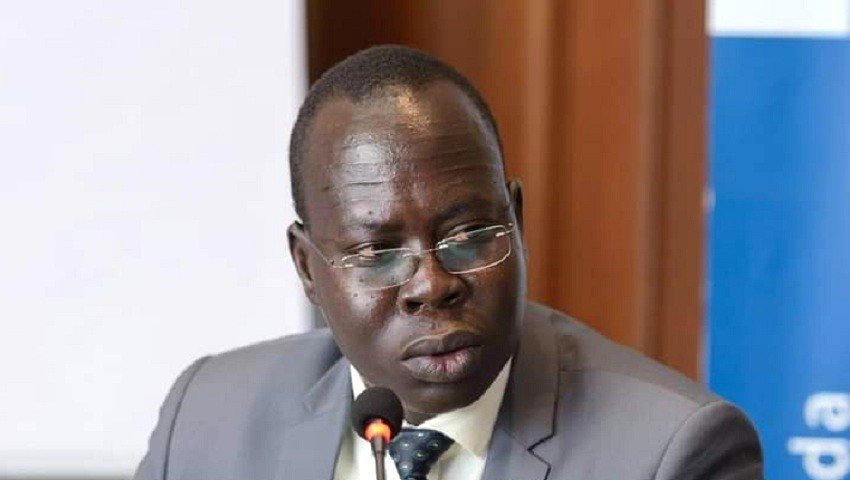By Matik Kueth
South Sudanese human rights activist Ter Manyang, on Friday called on the African Union (AU) and the United Nations Security Council (UNSC) to take swift action to implement the long-overdue Hybrid Court for South Sudan, established under the 2015 peace pact, to ensure justice for victims of war crimes and atrocities committed during the country’s civil conflict.
In an exclusive interview with King Media, Manyang, who is the Executive Director of the Center for Peace and Advocacy (CPA), emphasized that without meaningful accountability, South Sudan cannot progress toward genuine reconciliation and sustainable peace.
“I call upon the African Union, the United Nations Security Council to urgently move toward dropping the legal framework established by the hybrid court for South Sudan. Without accountability, reconciliation is incomplete, and the victims cannot truly heal. Enquiring justice is not only about addressing the past, but also preventing future atrocities in the country,” Manyang said.
South Sudan, still grappling with the aftermath of years of violent conflict, continues to face what Manyang describes as a “shrinking civic experience.” Civil society actors, journalists, opposition leaders, and human rights defenders are increasingly under threat, with limited space to operate or advocate for justice.
Amid these oppressive conditions, Manyang warned that the voices of victims, particularly women, refugees, internally displaced persons (IDPs), and other marginalized communities, are being silenced, ignored, or entirely denied.
“This environment makes it difficult to advocate for accountability and justice in the country,” he stated.
A broken promise
Manyang stressed the lack of concrete actions by international and regional stakeholders, despite their vocal commitments to justice.
He slammed political elites and social justice leaders for deliberately stalling the process in order to maintain their positions of power and shield themselves from accountability.
“The reality is that some of the regional political elite and the social justice leaders reduce effort to establish the justice mechanism. They prefer to maintain the state-acquired and benefit from the infinity, while international actors have shown interest in their inconsistency to pressure. A lack of the concrete action allows the culture of the infinity to persist in the country, and this one is not acceptable,” he stressed.
The human rights activist further underlined the essential role of civil society in sustaining pressure on both domestic and international actors to ensure justice mechanisms are not abandoned.
“Civil society must continue to advocate and make pressure. Without accountability, the truth-telling reconciliation efforts are compromised in the country,” he emphasized.
South Sudan, born out of decades of struggle and civil war, remains haunted by unresolved atrocities. Many victims feel forgotten, with little recourse to justice.
The absence of functional legal mechanisms has allowed impunity to take root, reinforcing cycles of violence and distrust.
The establishment of the Hybrid Court for South Sudan, as mandated by the African Union and supported by regional bodies like IGAD, was intended to serve as a cornerstone for transitional justice.
However, its progress has been repeatedly derailed by a lack of political will and regional silence.
Justice in limbo
Despite substantial documentation of war crimes, including mass killings, widespread sexual violence, and forced displacement, no perpetrators have been held accountable through the hybrid court, which remains unestablished nearly a decade after its initial mandate.
The Hybrid Court was first outlined in Chapter Five of the 2015 Agreement on the Resolution of the Conflict in the Republic of South Sudan (ARCSS) and was reaffirmed in the 2018 Revitalized Peace Agreement.
It was to be jointly set up by the African Union and the Government of South Sudan, but ten years later, its implementation is still in limbo.
As the country nears critical political milestones in 2025, including long-postponed national elections, Manyang and other civil society advocates argue that justice must be central to any legitimate transition.
The path to justice in South Sudan remains uncertain and fraught with challenges. Yet, despite political tensions and increasing fears that the peace agreement could collapse, the demand for accountability continues to grow.
Chapter Five of the peace agreement discusses the hybrid court, whose implementation is facing dwindling delays. For the establishment of a national truth and reconciliation commission as the sole instrument of transitional justice in South Sudan, which Kiir and Machar lobbied for in August 2015.
Manyang’s call reminds us that peace founded on silence and impunity is fragile, and that lasting reconciliation requires justice.



